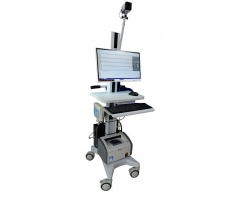Wechat QR code

TEL:400-654-1200

TEL:400-654-1200

Can aspirin help prevent cancer?
Aspirin has been around for more than 100 years since it was first developed in the late 19th century. Over a hundred years, aspirin was used in an estimated one billion tablets, making it one of the world's most famous drugs. In addition to its role as an analgesic and anti-inflammatory, aspirin is also important in preventing cardiovascular disease, reducing the risk of cardiovascular events, such as heart attack or stroke.Meilun
In recent years, a number of clinical epidemiological studies have found that in patients with colon, breast, lung, prostate cancer and other tumors, the death rate due to tumor presents an exponential decline with the increase of aspirin intake. Therefore, more and more scholars believe that aspirin has a certain anti-tumor effect. Yimatong summarizes the latest research on aspirin and cancer, as follows.
Anti-tumor mechanism of aspirin
Aspirin can affect platelet aggregation and play an anti-tumor role. By leading to platelet dysfunction, it effectively inhibits the release of cox-1 by platelets, and induces the irreversible inactivation of cox-1 activity, indirectly inhibits the aggregation of platelets, and thus inhibits the metastasis of tumor cells.
Aspirin can inhibit tumor cell growth by inhibiting tumor related transcription factors such as nuclear transcription factor kappa B (NF- kappa B), such as IKK, extracellular signal-re1ated kinas (ERK), p38MAPK, and cycline-dependent protein kinase (CDKs).
Animal studies have shown that aspirin can inhibit the expression of bcl-2 gene, up-regulate the expression of Bax gene, and then up-regulate the expression of cysteine aspartic acid specific protease gene, so as to achieve the anti-tumor effect.
Aspirin can also play an anti-tumor role by enhancing the expression of tumor necrosis factor-related apoptosis-inducing ligand death receptor (DR) 5.Meilun

Long-term aspirin and cancer death risk
Long-term dosing of aspirin may be associated with a reduced relative risk of death from any cause, including cancer, according to a new observational study recently presented at the 2017 AACR annual meeting. For men and women, taking 0.5 to 1.5 standard tablet doses of aspirin per week is beneficial. But the authors stressed that the minimum period of regular use associated with reduced cancer mortality was six years. The reduction in the risk of cancer death may be modest, but the effectiveness increases with weight gain.
"King of cancer" pancreatic cancer prevention, can be responsible for aspirin?
A recent Chinese study published in the journal Cancer Epidemiol Biomarkers Prevention showed that regular aspirin intake may reduce the risk of pancreatic Cancer by as much as 46 percent. In a large sample of people in Shanghai, the study found that regular aspirin use could halve the risk of pancreatic cancer. These data are consistent with population studies in other parts of the world.
Aspirin reduces the risk of bile duct cancer!
Dr Jonggi Choi from the Mayo clinic school of medicine led the team to conduct a hospital-based case-control study to analyse the relationship between aspirin and other risk factors and cholangiocarcinoma. The research results were published in Hepatology, a famous Hepatology journal, in March 2016. This study shows that low-dose aspirin may significantly reduce the incidence of cholangiocarcinoma, adding new evidence for the chemoprophylaxis of aspirin in cancer. With regard to the prevention mechanism of aspirin for cholangiocarcinoma, it is speculated that the anti-inflammatory effect of aspirin may inhibit biliary inflammation.
Aspirin has been tentatively recommended for the prevention of colorectal cancer
Recently, the U.S. preventive services task force issued a draft guideline that makes low-dose aspirin a class B recommendation for preventing cardiovascular disease and colorectal cancer in people aged 50 to 59. The draft is still open for public comment, but if it passes it will overturn their previous decision against aspirin to prevent colorectal cancer.
The U.S. preventive services task force (USPSTF) states that, in light of growing long-term evidence of the benefits of low-dose aspirin in preventing and reducing the risk of developing colorectal cancer (CRC) and cardiovascular disease (CVD), the USPSTF will recommend low-dose aspirin in people aged 50-59 years in a draft guideline.
Aspirin has also been linked to hepatocellular, breast, prostate, skin, lung, ovarian and brain cancers. For more information, see aspirin and cancer risk summary.